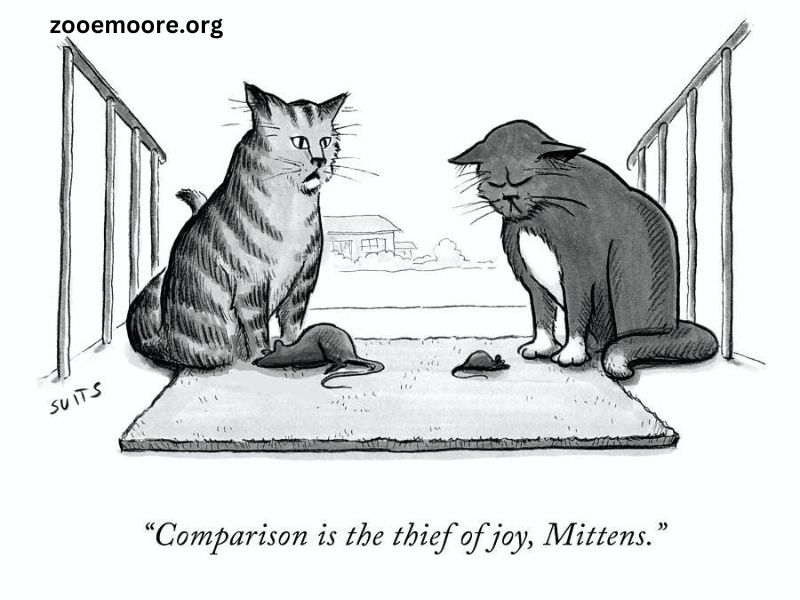In a world saturated with images, stories, and narratives of success, beauty, and happiness, the act of comparison has become an almost involuntary response. We scroll through social media, watch television, and engage in conversations that often lead us to measure our lives against those of others. Yet, as Theodore Roosevelt famously stated, “Comparison is the thief of joy.” This powerful phrase encapsulates a profound truth about the human experience. In this article, we will explore the psychological and emotional impacts of comparison, its roots, and strategies for cultivating joy without the shadow of comparison.
The Psychological Underpinnings of Comparison
The Nature of Comparison
At its core, comparison is a natural human behavior. From an evolutionary standpoint, it served as a survival mechanism. Early humans compared their abilities to gather food, find shelter, and evade threats in order to improve their own chances of survival. However, in today’s context, the stakes have shifted dramatically. We now compare our lifestyles, accomplishments, relationships, and appearances—often against an unrealistic backdrop created by social media and curated lives.
The Impact on Self-Esteem
Comparison can significantly influence our self-esteem. When we measure ourselves against those we perceive as more successful, attractive, or fulfilled, we often find ourselves lacking. This can lead to feelings of inadequacy, low self-worth, and even depression. Research shows that social comparison is linked to increased anxiety and decreased life satisfaction, particularly among young people who are most engaged with social media.
The Comparison Trap
The comparison trap is particularly insidious. We often focus on the highlights of others’ lives while ignoring the challenges they face. It’s easy to forget that everyone has struggles, failures, and insecurities. This skewed perception creates a distorted view of reality, leading us to believe that others are living perfect lives while ours is riddled with imperfections.
The Roots of Comparison
Social Media Influence
In the digital age, social media plays a pivotal role in shaping our comparisons. Platforms like Instagram, Facebook, and TikTok showcase carefully curated images that highlight the best moments of people’s lives. The ‘like’ culture reinforces the idea that worth is determined by external validation. Consequently, when we do not receive the same level of attention or engagement, we may feel inadequate.
Cultural Norms and Expectations
Cultural narratives also contribute to the comparison phenomenon. Society often promotes specific ideals related to success, beauty, and happiness. From advertisements to television shows, we are bombarded with messages that suggest a particular lifestyle is the benchmark for fulfillment. These cultural standards create a pressure to conform, leading many to evaluate their lives against unattainable ideals.
Personal Experiences
Personal history and upbringing can further influence our tendency to compare. Individuals who grew up in competitive environments, whether at home, in school, or in sports, may find themselves more prone to comparison. These experiences can shape self-perception and the belief that one’s worth is contingent upon being better than others.
The Consequences of Comparison
Emotional Distress
One of the most immediate effects of comparison is emotional distress. Feelings of envy, resentment, and inadequacy can arise when we juxtapose our lives with those of others. This emotional turmoil not only affects our mental health but can also strain relationships, as we may withdraw from friends or family who remind us of our perceived shortcomings.
Decreased Motivation
Paradoxically, while comparison may initially motivate us to improve, it can often have the opposite effect. When we feel overwhelmed by the achievements of others, we may succumb to a sense of hopelessness. This can lead to inaction and a reluctance to pursue our goals, as we fear we will never measure up.
Loss of Authenticity
Constantly comparing ourselves to others can diminish our authenticity. We may begin to conform to what we think others expect of us rather than pursuing our genuine interests and passions. This loss of self can result in a hollow existence where we are merely trying to keep up rather than truly living.
Cultivating Joy Without Comparison
Embracing Gratitude
One of the most effective ways to combat the negativity of comparison is to cultivate a practice of gratitude. By focusing on what we have—our strengths, achievements, relationships, and experiences—we shift our perspective from lack to abundance. Keeping a gratitude journal can help us recognize the positives in our lives, creating a sense of fulfillment that comparison cannot diminish.
Limiting Exposure to Triggers
Being mindful of our media consumption is crucial in reducing the impact of comparison. Consider unfollowing accounts that evoke feelings of inadequacy or discontent. Instead, seek out content that inspires and uplifts. Surrounding ourselves with positivity can foster a more nurturing environment for self-acceptance.
Practicing Self-Compassion
Self-compassion involves treating ourselves with the same kindness we would offer a friend. It’s essential to recognize that everyone experiences difficulties and setbacks. By being gentle with ourselves, we can mitigate feelings of inadequacy and embrace our imperfections as part of the human experience.
Setting Personal Goals
Rather than measuring ourselves against others, we can shift our focus to personal growth and achievement. Setting realistic, individual goals based on our values and desires can create a sense of purpose and fulfillment. Celebrate your own milestones, no matter how small, and recognize that each step forward is a victory.
Fostering Connection
Building genuine connections with others can help counteract the loneliness that often accompanies comparison. Engage in meaningful conversations and seek out supportive communities that encourage authenticity. When we share our struggles and triumphs with others, we realize that we are not alone in our experiences.
Mindfulness and Presence
Practicing mindfulness can help us remain grounded in the present moment. Techniques such as meditation, deep breathing, and mindful observation can enhance our awareness of thoughts and feelings, making it easier to catch ourselves when we slip into comparison. Being present allows us to appreciate our unique journey rather than being preoccupied with others’ paths.
Conclusion
The act of comparison is deeply ingrained in human nature, yet it can lead us away from joy and fulfillment. By recognizing its impact and taking proactive steps to cultivate self-acceptance, gratitude, and mindfulness, we can reclaim our joy and appreciate our individual journeys. Life is not a race or a competition; it is a unique experience that deserves to be celebrated in its own right. Remember, comparison may be the thief of joy, but embracing our individuality is the key to unlocking true happiness. In the end, it’s not about being better than others; it’s about being the best version of ourselves.



